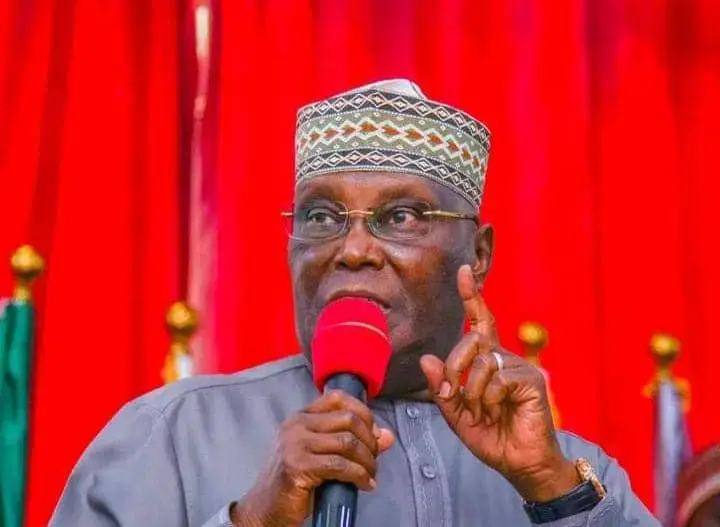By:Chubado Babbi Tijjani
The future they say belongs to those who prepare for it. A statement the Qatari’s appeared to have taken literarily, as evidenced by the country’s landmark and unequaled achievements in virtually all ramifications of life. The unparalleled audacity with which Qatar, a city from the sand, launched itself on the global stage is both profound and invigorating. Modern Qatar has proven to the rest of the world that it takes foresight, visionary leadership, political will, and determination to transform societies within a short period.
Modern Qatar is a mash-up of mystery and a success story. Its trajectory from a desert land into one of the most stimulating cities, embellished with all the trapping of modernization and civilization ty is something that has left pundits and observers from East to West in awe. Its leadership has shown the rest of the world that every society is truly governed by its triangles when properly harnessed; its political, economic, and social dimensions. It has taken into account the fact that visionary leadership, not conscripted to finesse or nuances and devoid of mediocrity can produce dividends. Not just within the domestic arena but on a global scale as exhibited time and over again by Qatar. When the world needed humane leadership, it was there to give one.
The mind-boggling question remains, how did Qatar achieve this feat of becoming a contending world power within such a limited period The answers lie in the coherent domestic and foreign policy of the leadership through a sustained period and with serious-minded individuals driving it; it rests with the pragmatic and people-centered fiscal and corresponding monetary policies combined with a dedicated and disciplined workforce. Culminating in a common vision that puts the interest of the collective first.
This can be seen in the nation’s policy direction since 2008 which has been shaped by the ‘Qatar National Vision 2030’. A well-thought-out and articulated development model with a blueprint to transform Qatar into the most advanced country in the world by the year 2030. Little wonder Qatar is the world’s next investment hub.
Qatar has risen so sporadically and spontaneously and has become a centripetal force attracting the attention of almost all countries on the global stage. Its commitment to the development of its people and state has remained unwavering so has its strategic vision.
x-raying Qatar’s smart city initiative gives us a glimpse into its future. The unparalleled enthusiasm with which the leadership has grappled with the concept of smart cities is unmatched. The presence of cutting-edge technology to streamline services, improve urban living, and deepen sustainability is fascinating. It has leveraged data and connectivity to improve efficiency and has placed itself at the front of the global smart city movement. This makes Doha the world’s future hub for technological innovation.
The quantum of world-class infrastructure littered around in Doha spins the mind. The sight of its futuristic skyline gives away Doha’s intentions for world-class infrastructure. The very existence of the city of ‘Lusail’ is a clear indication of Qatar’s outstanding world-world-class infrastructure that came from sand and has become one of the world’s most charming cities, earning it the name ‘city of the future’. Doha is awash with cutting-edge technological infrastructure and state-of-the-art facilities, its national museums, structures like the Aspire Tower, and so on, all showcase Doha’s grasp of what ‘moving forward with historical architecture should look like.
Doha is well-equipped with top-class hotels and airports, making it a global aviation hub. It has built the most attractive traditional luxury resort with modern state-of-the-art facilities. Its resorts and all of its infrastructural gains have no small measure contributed to the nation’s economic growth, leaving her with one of the most envied GDPs in the world.
Doha is one of the foremost cities to initiate the green revolution, long before countries began to converge in Paris to discuss the impact of climate change. The country technically leads the drive towards sustainable urban development through the implementation of ambitious green initiatives such as the Msheireb Downtown Doha Project, which is one of the world’s first sustainable downtown regeneration development initiatives. It has the best eco-friendly transport systems, and reen-building-friendly practices, and is a pacesetter in embracing the path of sustainable development for improved quality of life.
On its path towards economic diversification and global connectivity, the nation has proved that it can sustain itself through non-oil yields and earnings, contrary to views in some quarters. A glance at QQatar’sStrategic economic plan as contained in its Strategic Vision 2030, will reveal that Doha’s vision extends beyond oil and gas as evident in its economic diversification. The vision places a huge emphasis on other non-oil sectors including Tech, health care, finance, and opening up formassiveinflux of investments. The world view of Doha being a strategic location for a global transit hub has been bolstered by the city’s connectivity, world-class airline carriers, advanced logistic infrastructure, and the Qatar Free-Trade Zone. It is unarguable that Doha has integrated into a global economy.
It is also well to note that Doha is not just about its skyscrapers and unmatched infrastructures, it prides itself on its cultural renaissance; it is a place that thrives and promotes its arts and has become a center of attraction through its thriving center for arts and culture. This is apparent in the significant investment in cultural and religious institutions such as the Qatar National Library and Museum of Islamic Art, which aid in fostering the renaissance of artistic expression The famous annual Doha Film Institute and the Qatar International Food Festival all contribute immensely to showcasing the vibrancy of its culture and people. Qatar always seeks to foster harmony while preserving the sanctity of Islamic teachings which are about tolerance, respect for others, and living a life of sanity through modest behavior
This was exemplified in Qatar when the country hosted one of the most successful World CCupsthe the world has ever seen, as attested to by FIFA and other world-ranking bodies The event was well attended by people from various walks of life, and diverse cultural and religious backgrounds were hosted by Qatar for a whole month devoid of rancor and civil disobedience.
The World Cup hosted by Qatar, as attested to by FIFA and other world-renowned bodies, had no single record of violence, no single record of theft, no single record of fighting and or bloodletting which is the case where fanatics get drunk and end up fighting after a match is won or lost. The ban on alcohol and other ‘social elements’ drive youth restiveness in other climes was instrumental to achieving this.
It is also on record that Qatar used this singular event to showcase the beauty of the region and its people to more outsiders than any other mechanism or instrument has done in the past. Qatar used the occasion to display the beauty of Islam which preaches social cohesion and harmony amongst people of diverse backgrounds.
There is no doubt that Qatar is racing towards an exciting phase of development. As opined by Omar Alfardan, Managing Director of a Doha-based Commercial bank, “Qatar is fast becoming an attractive destination for international capital after the domestic investment boom around the World Cup. The country is positioning itself as a gateway to larger regional markets by establishing trade and investment agreements with neighboring countries. This strategy amplifies Qatar’s appeal to international investors”. This is a position that has long been corroborated by Bloomberg, the IMF, the World Bank, the Economist, etcetera, that Doha is heading in only one direction and that is, becoming the future!











